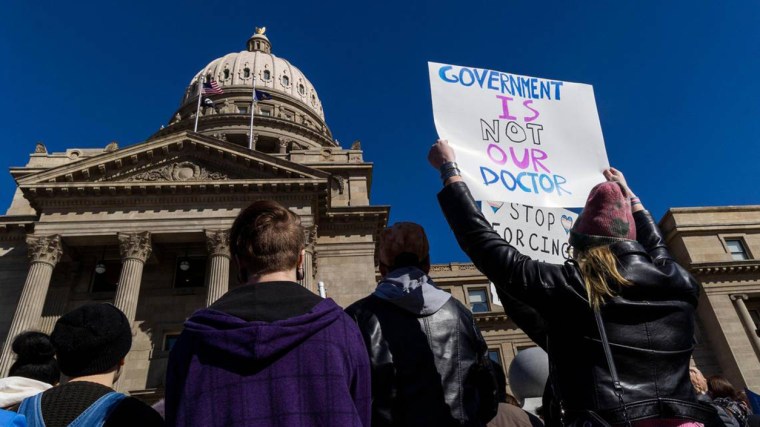Idaho cannot enforce a law banning gender-affirming care such as puberty blockers and hormones for transgender minors, a federal judge ruled, a victory for families who had sued the state challenging the law.
In a preliminary order on Tuesday, U.S. District Judge B. Lynn Winmill in Boise wrote that the 14th Amendment of the U.S. Constitution’s guarantees of equal protection and due process give parents the right to get gender-affirming care for their children.
“Transgender children should receive equal treatment under the law,” Winmill, who was appointed by Democratic former President Bill Clinton, wrote. “Parents should have the right to make the most fundamental decisions about how to care for their children.”
“We’re thankful the court saw the danger this law represented to our clients and we’re determined to fight this ban until Idaho is a safe place to raise every family,” Li Nowlin-Sohl of the American Civil Liberties Union, a lawyer for the plaintiffs, said in a statement.
Idaho Attorney General Raul Labrador said in a statement that the ruling “places children at risk of irreversible harm” and that he would appeal.
Idaho passed a law banning puberty blockers, hormones or surgeries aiming to “affirm the child’s perception of the child’s sex if that perception is inconsistent with the child’s biological sex.” It is one of about 20 Republican-led states that have banned or restricted gender-affirming treatments.
Two families of transgender girls receiving hormone therapy sued the state in May, saying the law would cut off medically necessary care and violated their rights.
Winmill, in granting their motion to block the law’s enforcement while he hears the case, wrote that the banned treatments were “safe, effective, and medically necessary for some adolescents.”
Courts have been divided on legal challenges to gender-affirming bans. Most lower level courts to consider the bans have blocked them so far, but appeals courts have sided with states.
The Georgia-based 11th U.S. Circuit in August upheld an Alabama ban, and the Ohio-based 6th Circuit in September upheld bans in Kentucky and Tennessee. Families challenging the Tennessee ban have asked the U.S. Supreme Court to take up their case, the first such petition on the issue.
The St. Louis, Missouri-based 8th Circuit last year blocked an Arkansas ban, though the court is expected to consider the issue again.
The case is Poe et al v. Labrador, U.S. District Court, District of Idaho, No. 1:23-cv-00269.
